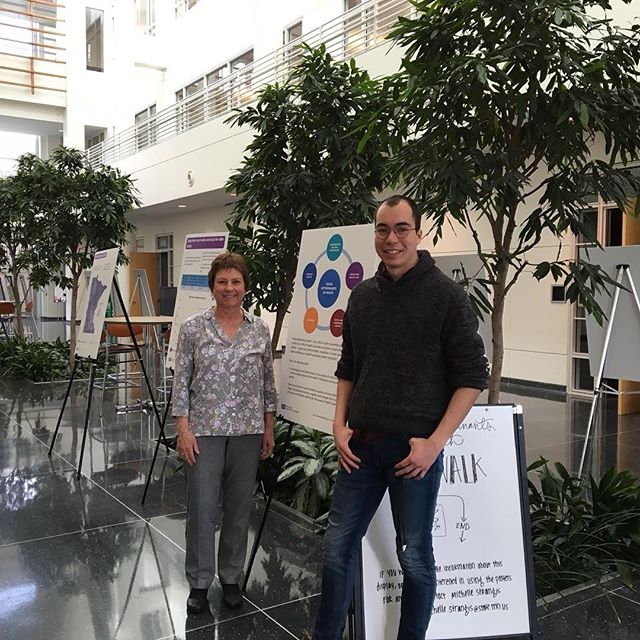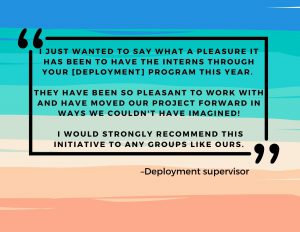Frequently Asked Questions (FAQ) for Organizations/Agencies Supervisors
What are the benefits of a deployment for my agency or organization? 
You will get to work closely with an enthusiastic and skilled MCH graduate student, many of whom are already professionals in their own right, who will assist you in starting or completing a project or area of need within your organization. Because we typically provide scholarship stipends to students, your agency or organization also benefits since you don’t need to find funding for the student through your organization or agency.
What is expected of someone who supervises a deployed student?
The Center is here to support you, the supervisor, and expects that you will communicate any issues with Center staff (sbenning at umn.edu) immediately. We anticipate that you will have interest in and capacity to help to train the next generation of public health professionals through a deployment to your agency or organization. You will utilize your expertise in your field to guide students through their project, provide supervision on project tasks and activities, communicate regularly with the student who is deployed to you and provide feedback to the student about their performance.
We also anticipate that you will provide the student with an orientation that will acclimate them to your organization’s or agency’s mission and culture, policies (including dress code policies, if any) and procedures, and anything else that will help ensure the start of a successful professional relationship.
Do students do solo projects for their deployment? Do they ever partner and work together on a deployment?
Deployments are usually solo but we’ve seen successful examples of deployments where two students worked together on one project, or have had a small window of overlap by two students (if one student assists with gathering data during their deployment while another student combs through the data, for example). Our funds limit multiple deployments except in rare circumstances.
If the student creates a “product” (a brief, paper, literature review, environmental scan, video, etc.), we may ask you to include language that credits our funder, HRSA’s Maternal and Child Health Bureau (MCHB), for providing the funding that allowed a student to help you or agency/organization staff create the product. This depends on the project being undertaken, and we will work with you to ensure this occurs if and when it needs to.
Why does the student have to be supervised by someone with a master’s degree?
Students may want to use deployments to fulfill their applied practice requirements. If they do, someone with an advanced degree will have to supervise the student.
Are deployments semester- or year-long?
Deployment length is flexible and depends on the project but they can begin at any time. However, if the student is receiving a stipend from the Center, the stipend will need to be paid–and project complete–by the end of the budget year (June 30 of every year).
The hours and timelines, like the projects, vary depending on the needs of the organization/agency.
How many hours typically can we expect a student to commit to a project?
A good average to aim for would be 5-7 hours a week, or 100-120 total hours (5 hours/week = 6 months). We have extended projects beyond the original timeline when there’s been a need to, and when the student is available to continue their work.
I’m interested in having a student deployed to my agency or organization. Now what?
Contact Center director Sara Benning at sbenning @ umn.edu. Then:
- The Agency/Organization: Crafts a brief job description of the project and a short rationale that includes the 5 Ws of the project (answers who, what, where, when and why). Ensures that all approvals have been made by their own agency/unit beforehand.
- The Center: Gauges student interest, promotes the deployment with students, and facilitates the hiring process (works with U of MN payroll and HR to get student set up in various systems, etc.).
- The Student: Completes any necessary paperwork for the Center and the org/agency they’ll be working with. If they’re completing the work as part of their applied practice experience, they will also need to ensure that paperwork is complete before beginning.
